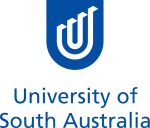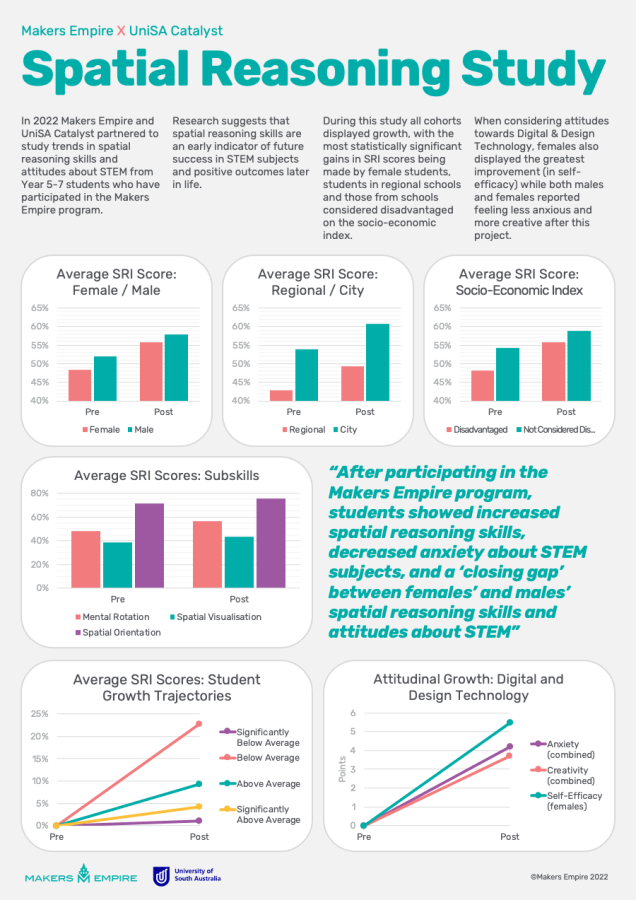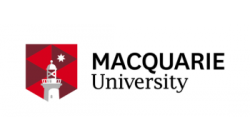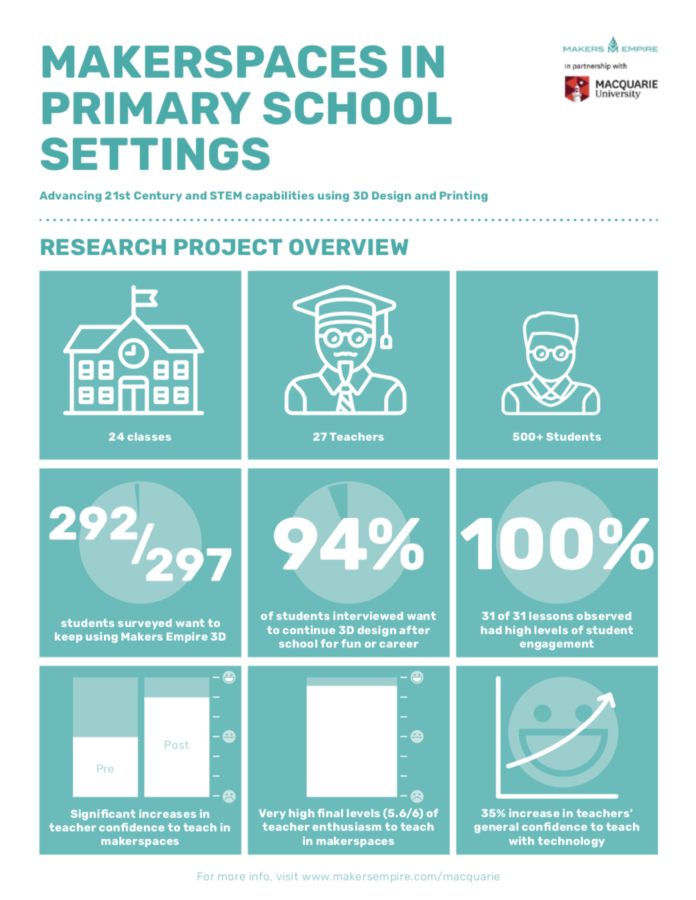Makerspaces have been widely advocated as a way to develop STEM abilities and soft skills. However, until recently, there has been little research that investigates the learning and teaching outcomes possible with makerspaces, particularly for younger students.
A 2018 Australian university research study on makerspaces in primary school settings reveals the compelling evidence of benefits of using Makers Empire for primary educators.
Across the 24 Kindergarten to Year 2 classes that were analysed, students developed a range of 21st century capabilities including creativity, problem-solving, critical thinking, inquiry, design thinking, collaboration, autonomy, literacy, numeracy, scientific understanding, digital literacy, communication, reflective learning capabilities and resilience.
Maker activities using 3D technology resulted in very high levels of student engagement, as well as increased levels of student confidence (particularly for less capable students). There was very strong student demand to complete further lessons involving 3D design and printing.
Teachers indicated that the well-structured, pedagogically grounded, hands-on and situated professional learning enabled them to develop a better understanding of makerspaces, how to teach in them, the technical skills required, and 21st century capabilities. The professional learning also significantly increased their confidence to teach in makerspaces.
An unanticipated outcome of the study was the extensive teacher transformation that took place. Several teachers indicated that they had shifted to be more collaborative, flexible, and comfortable with technology. Many teachers entered learning partnerships with students, and as a result, students came to see their teachers as models of life-long learning.






